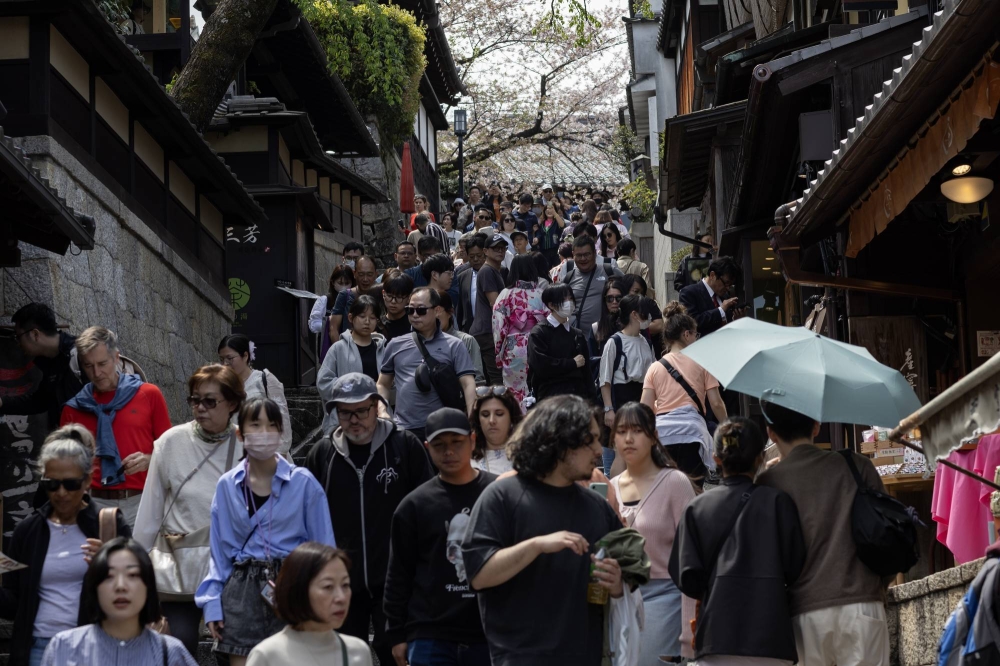Hotel prices in Japan soared to a near three-decade high in March, as the cheap yen and the cherry blossom season attracted a record number of tourists to the country.
The average daily room rate for March was about ¥20,986 ($136), the highest level since August 1997 and a nearly 20% increase from the same period last year, according to CoStar Group. The average hotel occupancy rate also increased to 78%.
A record 3.1 million people visited Japan in March. The yen is hovering at a 34-year low against the dollar, making the country an attractive destination for inbound tourists. The tourism boom has been led by arrivals from South Korea, Taiwan and China in the midst of the cherry blossom season, which traditionally draws in visitors.
Contributing to the spike in hotel prices is a labor shortage in Japan, according to Harumi Taguchi, principal economist at S&P Global Market Intelligence.
“To be able to cover the high occupancy rates with the labor shortage, the hotel rates have to be increased,” she said. “The demand is high from inbound tourists, so it’s an environment where it’s easy to raise the prices.”
The weakening yen has also spurred spending by holidaymakers. Foreign visitors spent ¥1.75 trillion in the January to March period, an increase of 52% from 2019, according to data from the Japan Tourist Agency. Shoppers have been snapping up luxury goods at discounted prices as well.
“Should demand from foreign visitors continue to increase, hotel prices may just keep going up,” said Taguchi. “And with the weak yen, it’s still cheap for foreigners to pay that price.”

